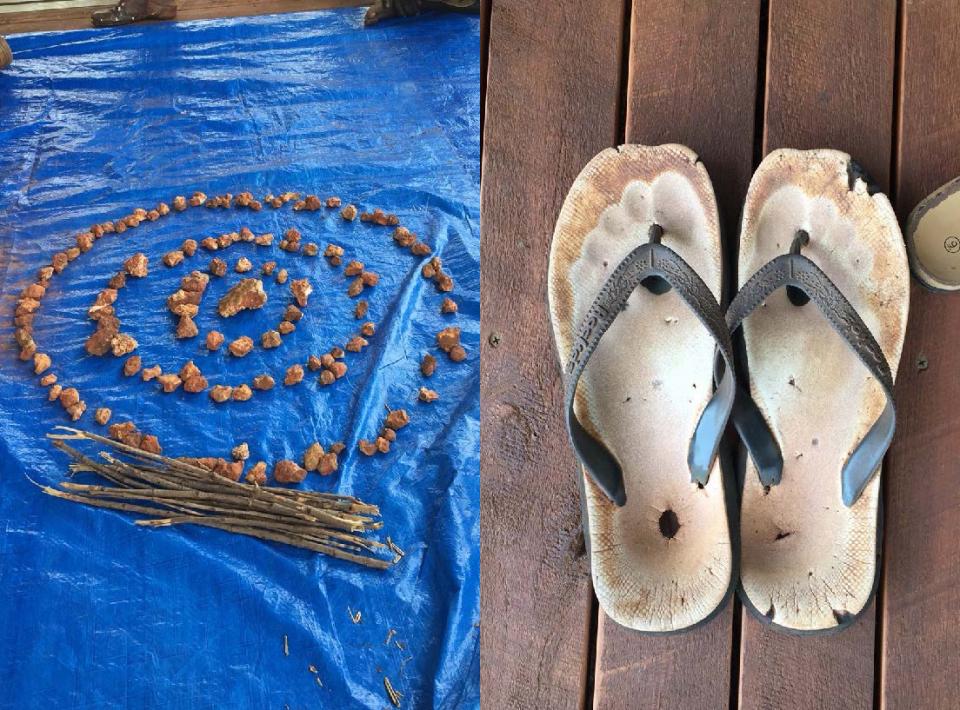
PUBLICATIONS
Published works

North Australian bushfire and natural hazard training - final project report
| Title | North Australian bushfire and natural hazard training - final project report |
| Publication Type | Report |
| Year of Publication | 2021 |
| Authors | Sutton, S |
| Document Number | 644 |
| Date Published | 01/2021 |
| Institution | Bushfire and Natural Hazards CRC |
| City | Melbourne |
| Report Number | 644 |
| Keywords | Bushfire, natural hazard, north australia, training |
| Abstract | This report provides an overview, including the north Australian bushfire and natural hazard (‘BNH’) context and the social background for the North Australian Bushfire and Natural Hazard Training project. The project has proceeded slowly (five years) and has changed dramatically as a result of engaging in Participatory Action Research (‘PAR’). This approach to researching the training needs of residents of remote north Australian communities encouraged these residents to participate in the framing of the enquiry as well as the generation of answers and training materials. Several desktop reviews were undertaken during the project. These examined the existing BNH training offerings as well as the opportunities that existed at the time for Indigenous community members to obtain leadership training. The reviews found that where training existed it largely omitted Indigenous perspectives, particularly in terms of strategic overviews and planning. For leadership training, it was found that where remote communities were able to access training for BNH it did not focus on leadership and that which focused on leadership did not include BNH management. In response to the views of project participants and the reviews, the project developed a set of training units that, taken together, drew together the essential elements of Indigenous and non-Indigenous BNH training in a Vocational Education and Training (‘VET’) style program. The program does however modify the ‘standard’ VET approach through the provision of flexible temporal arrangements for training and assessing. This need was identified as the project recognized the requirement to train ‘on Country [1]’ and to use local knowledge-holders in the preparations for and delivery of the training. Nine formal ‘engagements’ were held over the life of the project, including workshops and three training pilots. In each pilot, different components of the ten training units were presented and refined. A detailed and culturally appropriate evaluation was undertaken of each pilot and the feedback was incorporated into the next ‘round’ of pilot training. 10 training units have been developed by the project. Some of these are entirely new while others are adaptations of existing training, albeit adapted sufficient to warrant a new unit descriptor. The 10 units have not yet been subject to National Accreditation, but are designed to map onto the Standards for VET Accredited Courses as set out by the Australian Skills Quality Authority. Each unit has been framed in terms of ‘Elements and Performance Criteria’, ‘Evidence Guide’, ‘Requiired Skills and Knowledge’ and a ‘Range Statement’. [1] The capitalised term ‘Country’ is used throughout to indicate the entity which extends well beyond the English term for ‘nation’ or ‘landscape’ or ‘rural’. For the Indigenous people who participated in this project ‘Country’ refers an entity which transcends physical, moral, spiritual and metaphysical realms and of which they are an integral part. Country is at all times the ground on which one stands but also inside a person (cf. Holmes & Janpajimpa 2013: 18). It is something one can be taken off, but can never be removed from within. |
| Refereed Designation | Refereed |
Published Works


